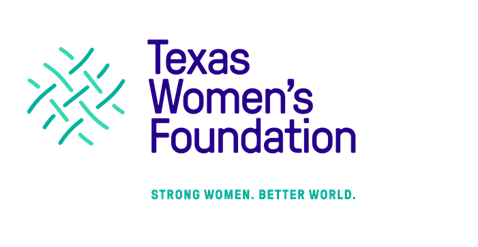As the legislative session is now well underway, Dallas Women’s Foundation is proud to serve as a collective voice advocating for policies that empower women and girls, and provide pathways to achieving economic security.
Today and over the next two weeks, I’ll spotlight key facts and recommendations from our latest research, Economic Issues for Women in Texas 2017, which focuses on the four critical building blocks necessary for women to achieve economic security – higher education, child care, health insurance and housing. These four building blocks are essential for financially strong women, girls and families, and with nearly 14 million women and girls living in Texas – working, going to school and caring for families – investing in women makes for a stronger Texas economy.
Health Insurance
Health insurance is a critical building block of women’s financial security. It shields women from spiraling into debt when illness or accident occurs — and also smooths the financial challenges of familiar events in women’s lives, such as having a child or getting sick. Without the protection of adequate health insurance, families are often one incident away from financial hardship. The uninsured are more likely to suffer financial hardship due to medical bills, more likely to have medical debt, and are at higher risk of falling into medical bankruptcy. Today, more than two million Texas women and girls remain uninsured, and given that 61 percent of Texas families depend wholly or substantially on women’s earnings, the threat of women becoming ill or injured is a financial risk for many Texas families. Removing barriers to health insurance strengthens women and their families, and gives them the means they need to succeed.
Things You Should Know About Texas Women and Health Insurance
- In our state, 2.2 million women and girls (16 percent) lack the financial protection of health insurance.
- Younger women (ages 18-35) and Hispanic women are the least likely to be insured.
- Although women report that the biggest barrier to health insurance is cost, 30 percent of uninsured females in Texas are actually income-eligible for financial assistance that can significantly reduce the cost of health insurance.
- Even with health insurance, many Texas workers (45 percent of private-sector workers) lack paid sick days to take themselves or family members to the doctor. Working mothers are more likely than working fathers to report staying at home when a child gets sick.
What We Can Do Today
- Advocate for paid sick leave to become an earned benefit that is available to more working women, so they can go to the doctor or stay home when they or their children are sick.
- Direct the Texas Department of Insurance to enact federal standards related to mental health parity in regulation of private insurance plans.
- Petition for increased financial support for community-based organizations that assist Texas women in navigating their health insurance and financial assistance options.
We believe that by removing barriers to health insurance, we will strengthen women and their families, and provide them the means they need to succeed and achieve economic security.
I encourage you to join us in our advocacy efforts, and share this update with your family, friends, co-workers and other networks. To contact your legislator, click here. To see the full report and findings for each building block, visit www.dallaswomensfdn.org/economicissues.
Together, we can influence and advance policies that will change the future for women and girls in our community, state and beyond. And when we are able to empower women and girls to achieve economic security, they will be the Strong Women who can – and will – build a Better World.
Sincerely,
Roslyn Dawson Thompson
President and CEO
